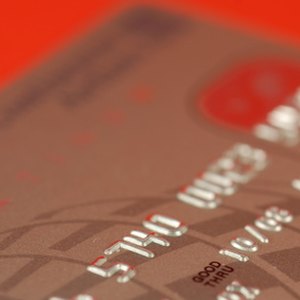
Old credit cards were read with a roller and paper that could track the number embossed on the card; however, modern credit cards include a magnetic strip on the back of the card that contains all of the information necessary to use the card. If you have ever found that one of your credit cards stopped working suddenly without any obvious reason, it is possible that the strip was demagnetized. A few precautions taken with your bank cards can help protect the strips on the cards from demagnetizing.
Store your cards in your wallet in separate compartments, and never store them back to back. Place your cards so that the magnetic strips are separated and as far from one another as possible to prevent the strips from demagnetizing one another.
Avoid powerful magnets or keeping magnets close to where you store your cards. Keep your cards away from magnetic machines like MRI machines, powerful speakers and television sets with powerful magnets; never use a wallet with a magnetic clasp to carry your cards.
Carry your card in a protective sleeve. Obtain a sleeve from your bank, or you can use an old hotel key card protector sleeve. The sleeve will not only protect your card from being demagnetized, but will also prevent it from being damaged by dirt or scratches on the magnetic strip.
Tips
Never carry your card loose in a pocket; scratches on the magnetic strip can be just as damaging as demagnetizing the strip.
References
Writer Bio
David Somerset has been a writer intermittently for 11 years. He attended New Mexico Tech and earned a Bachelor of Science in technical communication in 2007. From being published in the "Bucksworth Community News" to writing how-to articles for eHow, his experience is quite diverse.

